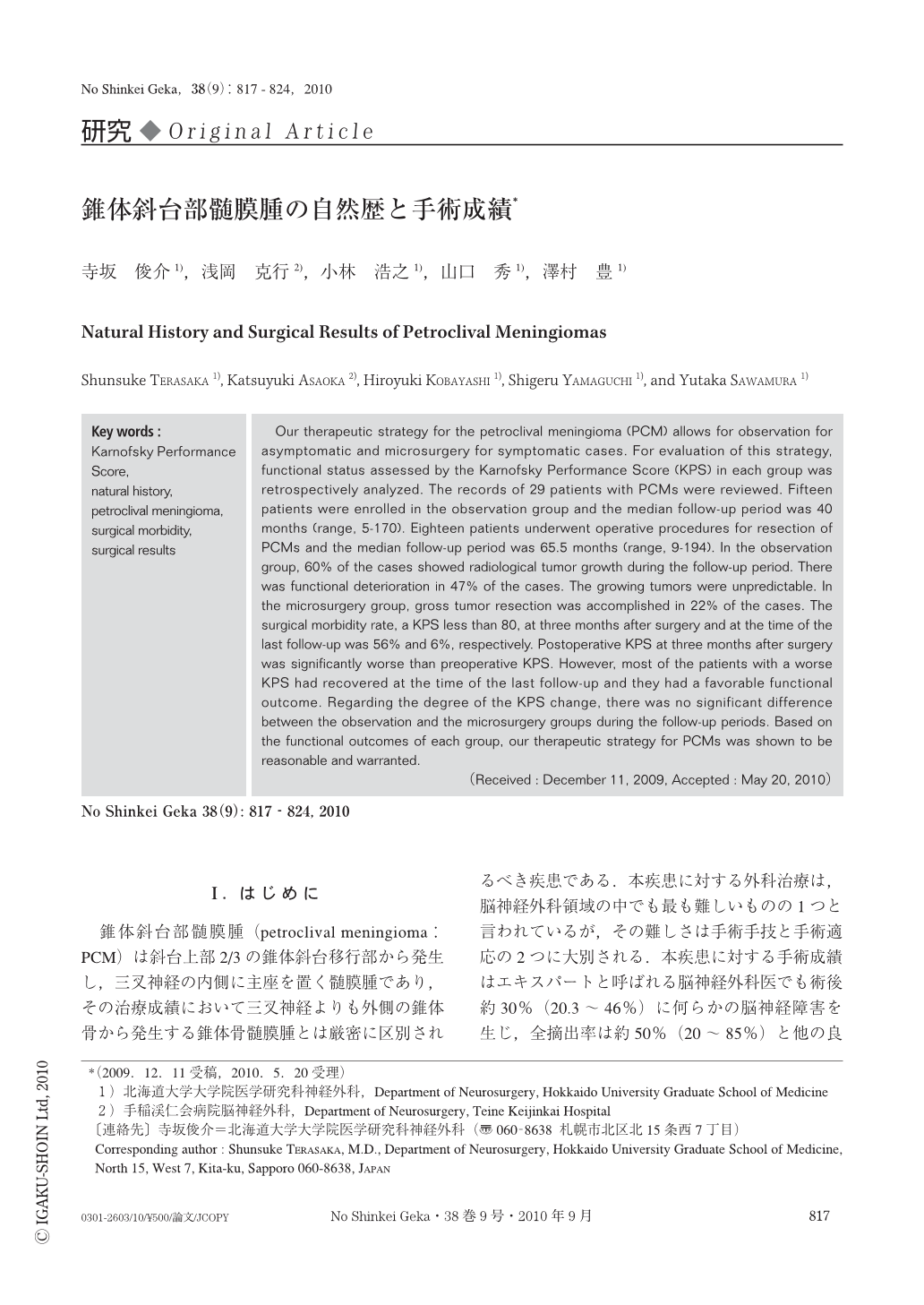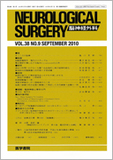Japanese
English
- 有料閲覧
- Abstract 文献概要
- 1ページ目 Look Inside
- 参考文献 Reference
Ⅰ.は じ め に
錐体斜台部髄膜腫(petroclival meningioma:PCM)は斜台上部2/3の錐体斜台移行部から発生し,三叉神経の内側に主座を置く髄膜腫であり,その治療成績において三叉神経よりも外側の錐体骨から発生する錐体骨髄膜腫とは厳密に区別されるべき疾患である.本疾患に対する外科治療は,脳神経外科領域の中でも最も難しいものの1つと言われているが,その難しさは手術手技と手術適応の2つに大別される.本疾患に対する手術成績はエキスパートと呼ばれる脳神経外科医でも術後約30%(20.3~46%)に何らかの脳神経障害を生じ,全摘出率は約50%(20~85%)と他の良性腫瘍のそれと比較して明らかに不良である1-3,10-12,15,16).本疾患の手術適応に関しては,過去にほとんど議論されていない19).最近では無症候性の小さなPCMも偶然に発見されることがあり,その手術適応に悩むことも少なくない.本疾患のように,良性腫瘍であるにもかかわらずハイリスクな手術を適用する場合には,少なくとも手術治療群の機能予後が自然経過における機能予後と同等かそれ以上であることが望ましい.
今回われわれは当施設でのPCMの手術成績を報告するとともに,機能予後という観点から経過観察群と手術治療群の回顧的解析を行い,PCMの手術適応に関して考察する.
Our therapeutic strategy for the petroclival meningioma (PCM) allows for observation for asymptomatic and microsurgery for symptomatic cases. For evaluation of this strategy, functional status assessed by the Karnofsky Performance Score (KPS) in each group was retrospectively analyzed. The records of 29 patients with PCMs were reviewed. Fifteen patients were enrolled in the observation group and the median follow-up period was 40 months (range, 5-170). Eighteen patients underwent operative procedures for resection of PCMs and the median follow-up period was 65.5 months (range, 9-194). In the observation group, 60% of the cases showed radiological tumor growth during the follow-up period. There was functional deterioration in 47% of the cases. The growing tumors were unpredictable. In the microsurgery group, gross tumor resection was accomplished in 22% of the cases. The surgical morbidity rate, a KPS less than 80, at three months after surgery and at the time of the last follow-up was 56% and 6%, respectively. Postoperative KPS at three months after surgery was significantly worse than preoperative KPS. However, most of the patients with a worse KPS had recovered at the time of the last follow-up and they had a favorable functional outcome. Regarding the degree of the KPS change, there was no significant difference between the observation and the microsurgery groups during the follow-up periods. Based on the functional outcomes of each group, our therapeutic strategy for PCMs was shown to be reasonable and warranted.

Copyright © 2010, Igaku-Shoin Ltd. All rights reserved.


